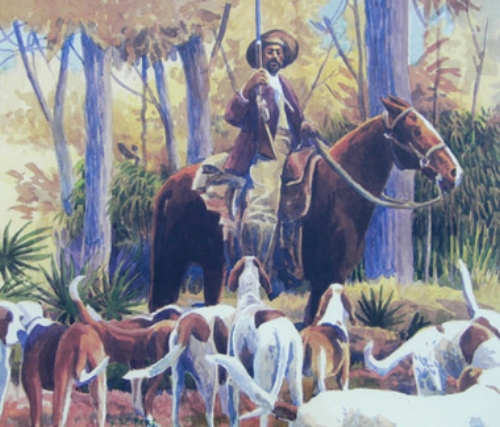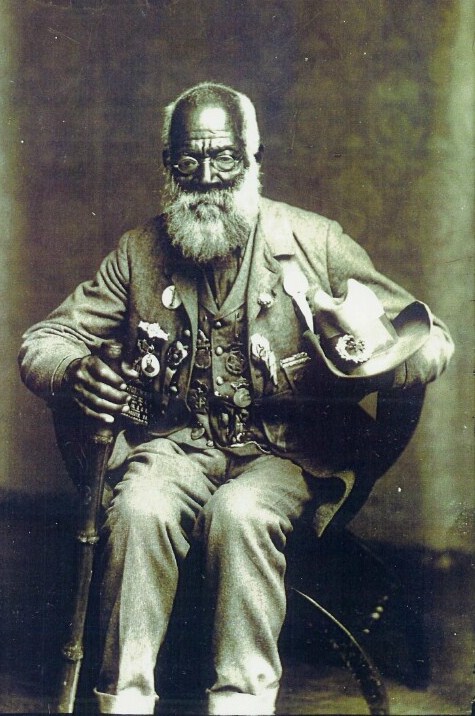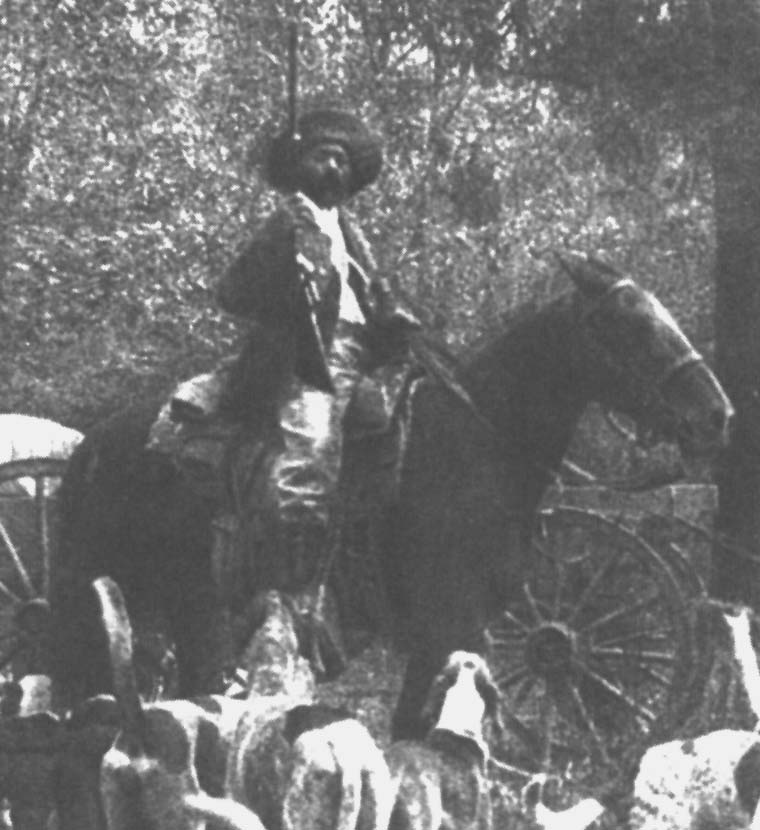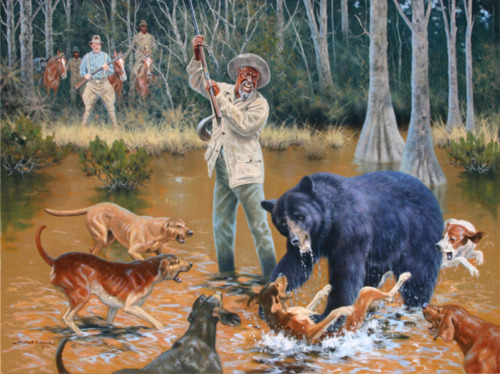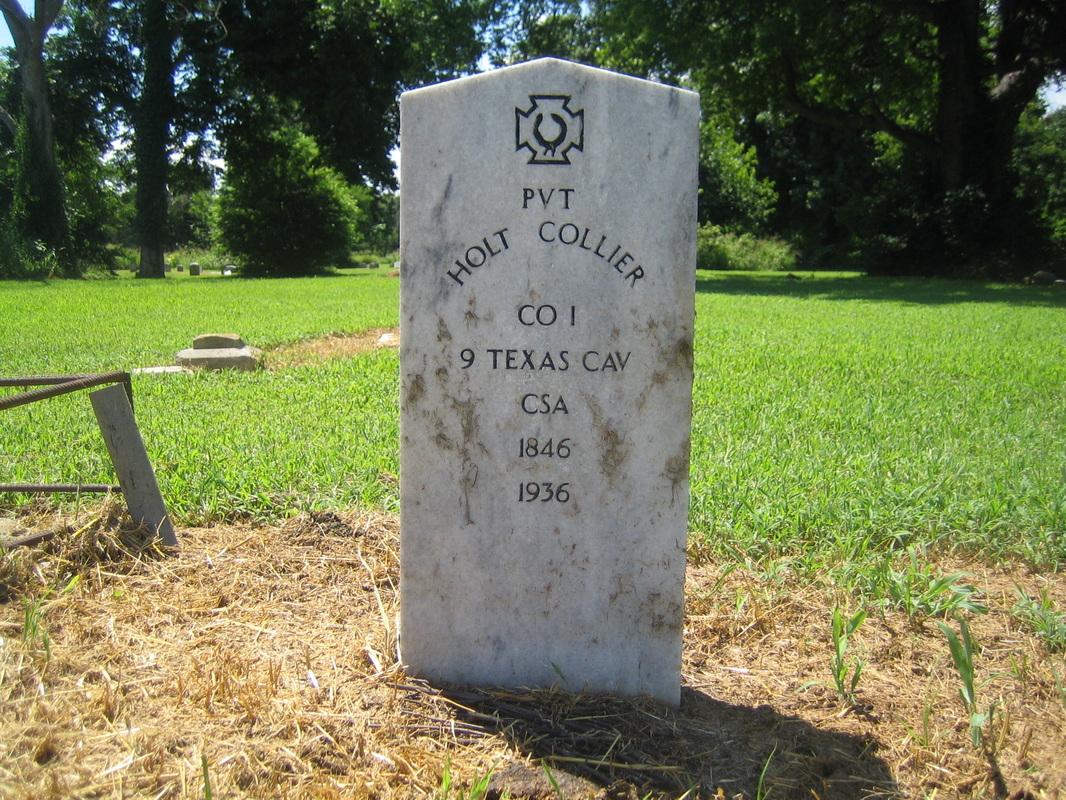Art by Sam Beibers
About Holt Collier
From "Holt collier: His Life, HIs Roosevelt hunts, and the Origin of the teddy bear" by minor ferris buchanan
The now famous Mississippi bear hunt involving President Theodore Roosevelt and a hunting party of old friends and hunting comrades officially began on November 13, 1902, at Smedes Plantation in Sharkey County, Mississippi. Though the hunt had been planned at high corporate and governmental levels for months, its success was wholly dependent upon the skill and performance of Holt Collier, a fifty-six-year-old former slave. The extraordinary efforts of Collier to make that hunt a success by single-handedly capturing a large wild black bear is alone worthy of considerable attention. The fact that the popular president was in the hunting party and that it was widely reported in the national press made the event no less impressive.
Almost forgotten now, Holt Collier was a remarkable figure in the history of the Delta region of Mississippi, and he was recognized nationally during his lifetime. From the perspective of many, including modern African Americans and possibly his own contemporaries, Collier’s loyalties and his life story must be baffling and difficult to accept. In these more enlightened times his values and motives seem difficult to fathom.
The origin of the Teddy Bear stems from an occasion when President Theodore Roosevelt visited the wilderness of Mississippi in hopes of killing a black bear. He was guided on this hunt by Holt Collier, a former slave, Confederate veteran, Texas cowboy, Mississippi lawman, and noted pioneer. He is known to have killed over 3,000 bear in his lifetime–arguably more than Daniel Boone and Davy Crockett combined. Roosevelt,who also hunted with Collier in Louisiana in 1907, called him “the greatest hunter and guide I have ever known.”
It is unlikely that anyone will call him an ‘Uncle Tom,’ because Collier is known to have killed many white men, several in Mississippi. One exciting incident in the book is a detailed description of the gunfight at Washburn’s Ferry where Collier out-drew the notorious Louisiana outlaw Travis Elmore Sage. He was prosecuted only once–for the murder of a Union captain after the Civil War–but he was acquitted. Collier was famous nationally during his lifetime, but the racial atmosphere in Mississippi for the last eighty years kept his remarkable story from being told. There is no detailed and authoritative work on Holt Collier or the origin of the Teddy Bear other than this book.
The interest this biography has received is not limited to Mississippians or to fans of the Teddy Bear–there are the Roosevelt followers who have always known who Holt Collier was, but have never known the details of his life; the hunters and outdoors men who have embraced Holt Collier for his individual spirit; the Civil War afficionados who continue to debate the role of the African-American in the Confederate army; the Southern historians who have been drawn to this long forgotten story; and of course, the African-Americans who now know of the real ‘father of the Teddy Bear,’ and a man equal in stature to any pioneer in American history.
AWARDS: Buchanan's book has received many notable recognitions including the 2003 award for best non-fiction from the Mississippi Institute of Arts and Letters and the 2004 award for best non-fiction from the Mississippi Library Association. Most notably–as a direct result of Buchanan’s work–President George W. Bush in 2004 signed into law the creation of the Theodore Roosevelt and Holt Collier National Wildlife Refuges, both in Mississippi. Of more than 500 refuges in the national system, this is the only one named for a man of African descent.
